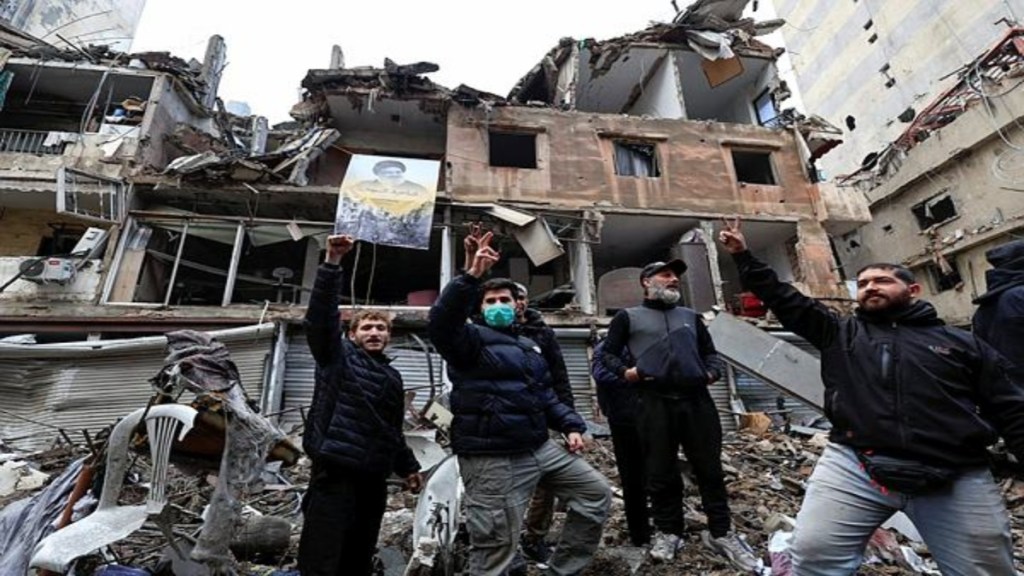A long-awaited ceasefire between Israel and the Iran-backed Hezbollah group took effect on Wednesday, marking a significant diplomatic achievement after more than a year of escalating conflict. The agreement, brokered by the United States and France, brings a temporary halt to hostilities along the Israeli-Lebanese border, which have resulted in thousands of casualties.
The ceasefire was signed in the wake of the Gaza war that ignited the latest conflict, which saw Israel clash with Hezbollah fighters along its northern border. This agreement offers a much-needed reprieve for civilians on both sides, who have endured frequent airstrikes and rocket fire.
Lebanon’s Role in Ensuring Ceasefire Compliance
As part of the agreement, Lebanon’s army will deploy troops in southern Lebanon to help enforce the ceasefire, preventing Hezbollah from rearming or rebuilding its infrastructure near the border. The Lebanese government has requested that residents displaced by Israeli airstrikes delay returning home until Israeli forces withdraw from Lebanese territory. The withdrawal will take place gradually over the next 60 days, with Lebanon’s military assuming control of the southern border areas.
Lebanese Prime Minister Najib Mikati welcomed the agreement, emphasizing the importance of maintaining peace and stability. He also noted that the Lebanese military would deploy at least 5,000 troops to ensure the ceasefire holds. Hezbollah, while not officially commenting on the agreement, has stated that it will emerge stronger from the conflict, citing continued resistance to Israeli forces.
Diplomatic Triumph Amid Rising Tensions
US President Joe Biden lauded the ceasefire as a diplomatic victory, underscoring the collaborative efforts between the U.S., France, and the Israeli and Lebanese governments. Biden reaffirmed that the cessation of hostilities is meant to be permanent, with Israel and Lebanon agreeing to work together to prevent any future outbreaks of violence along their border.
For Israel, the ceasefire presents an opportunity to focus on other regional threats, notably Iran and the militant group Hamas. Israeli Prime Minister Benjamin Netanyahu, while welcoming the deal, cautioned that Israel would respond forcefully to any violation by Hezbollah. Netanyahu also expressed confidence that the ceasefire would allow Israel’s military to replenish its resources and refocus on the broader regional threats.
Iran and Hezbollah’s Stance
Iran, a key ally of Hezbollah, expressed its support for the ceasefire, welcoming the agreement as a step towards regional stability. Hezbollah’s senior official Hassan Fadlallah indicated that the group would remain committed to its cause, despite the ceasefire. He emphasized that Hezbollah would continue to resist Israeli influence in Lebanon and that its supporters would only grow in the aftermath of the conflict.
In Israel, public opinion is divided. A poll conducted by Israel’s Channel 12 found that 37% of Israelis supported the ceasefire, while 32% were opposed. Opposition voices within Israel, including local leaders near the Lebanese border, have expressed concern over the potential risks of returning to a status quo that allowed Hezbollah to strengthen its position.
The Road Ahead
Despite the ceasefire agreement, challenges remain. The deployment of the Lebanese military and the withdrawal of Israeli forces will be critical in determining the lasting impact of the truce. The U.S. and France have committed to working with the United Nations peacekeeping force to ensure that both sides uphold the terms of the deal.
The ceasefire agreement is seen as a rare success for diplomacy in a region that has been plagued by conflict for decades. It offers a glimmer of hope for peace, though questions about the long-term stability of the region remain.
(With Reuters inputs)

